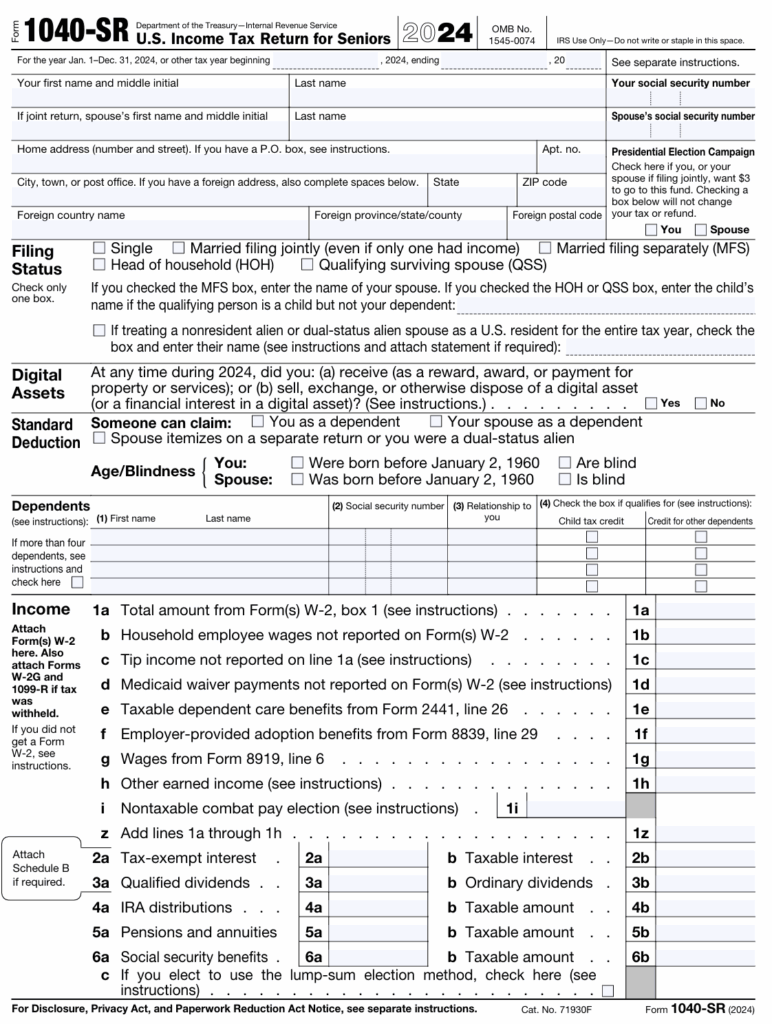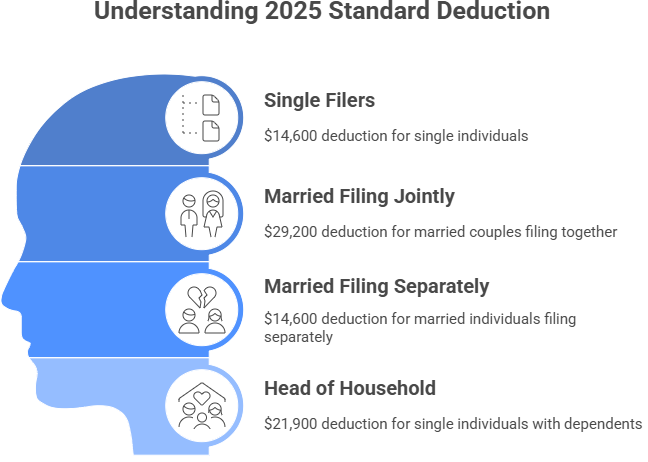The role the FEIE Standard Deduction plays in long-term expat tax planning
All About the Foreign Earned Revenue Exemption: Maximizing Your Requirement Reduction Benefits
The Foreign Earned Earnings Exclusion (FEIE) presents a valuable opportunity for U.S. citizens living abroad to reduce their tax obligation obligations. Recognizing the eligibility requirements is vital for those seeking to gain from this exclusion. In addition, claiming the common reduction can enhance overall tax obligation benefits. Nonetheless, handling this process entails mindful attention to detail and an awareness of typical mistakes. Discovering these facets can supply clearness and make the most of potential tax benefits.
Recognizing the Foreign Earned Income Exclusion (FEIE)
The Foreign Earned Revenue Exclusion (FEIE) permits U.S. residents and resident aliens working abroad to omit a section of their foreign earnings from federal revenue tax. This arrangement functions as an economic alleviation mechanism, allowing migrants to maintain a larger share of their revenue made in foreign nations. By minimizing taxed revenue, the FEIE assists relieve the concern of double taxes, as people might likewise go through tax obligations in their host countries. The exemption applies only to gained income, that includes earnings, incomes, and specialist charges, while passive revenue and financial investment gains do not qualify. To benefit from the FEIE, people must file specific types with the IRS, outlining their international earnings and residency - FEIE Standard Deduction. Understanding the subtleties of the FEIE can considerably affect monetary preparation for U.S. residents living overseas, making it essential for migrants to stay informed regarding this helpful tax obligation provision
Eligibility Standards for the FEIE
To receive the Foreign Earned Earnings Exclusion (FEIE), individuals must meet particular eligibility standards. This consists of enjoyable residency requirements, passing the physical visibility examination, and establishing a tax obligation home in a foreign nation. Each of these aspects plays an essential function in establishing whether one can gain from the exemption.
Residency Needs
Satisfying the residency requirements is necessary for individuals looking for to qualify for the Foreign Earned Income Exemption (FEIE) To be qualified, taxpayers have to develop an authentic home in a foreign country or nations for a continuous duration that generally covers an entire tax obligation year. This need emphasizes the need of a much deeper link to the international area, moving past mere physical presence. Individuals should demonstrate their intent to live in the foreign country and have actually developed their living circumstance there. Variables such as the size of remain, kind of real estate, and local neighborhood involvement are taken into consideration in determining residency. Meeting these criteria is essential, as failing to do so may invalidate one from profiting from the FEIE.
Physical Presence Test
Developing eligibility for the Foreign Earned Income Exemption (FEIE) can additionally be accomplished via the Physical Visibility Test, which needs individuals to be literally existing in an international country for a minimum of 330 complete days during a consecutive 12-month duration. This examination is advantageous for those who may not fulfill the residency demand but still stay abroad. The 330 days must be complete days, suggesting that any type of day spent in the United States does not count towards this total amount. It is essential for people to keep precise records of their traveling dates and areas to sustain their claims. Efficiently passing this examination can significantly lower taxable revenue and enhance economic end results for expatriates.
Tax Obligation Home Location
Tax home place plays an essential function in figuring out qualification for the Foreign Earned Revenue Exclusion (FEIE) To certify, an individual should establish a tax home in an international country, which suggests their main workplace is outside the United States. This is distinctive from a mere house; the individual should conduct their job in the foreign country while maintaining a significant link to it. The IRS needs that the taxpayer can show the intent to remain in the foreign location for a prolonged duration. Additionally, preserving a home in the U.S. can make complex eligibility, as it may suggest that the individual's real tax home is still in the United States. Comprehending this criterion is vital for making best use of FEIE benefits.
How to Declare the FEIE on Your Tax Return
Asserting the Foreign Earned Revenue Exemption (FEIE) on a tax obligation return calls for cautious interest to detail and adherence to certain IRS standards. Taxpayers have to initially verify qualification by fulfilling either the authentic residence test or the physical existence examination. As soon as eligibility is confirmed, they need to complete internal revenue service Form 2555, which information international made revenue and relevant details regarding their tax home.
It is necessary to report all foreign revenue properly and maintain suitable paperwork to support claims. Taxpayers ought to additionally know the maximum exclusion limit, which is subject to yearly changes by the IRS. Filing Form 2555 along with the yearly tax return allows taxpayers to exclude a section of their foreign incomes from U.S. taxes. It is recommended to seek advice from a tax specialist or Internal revenue service sources for upgraded information and advice on the FEIE procedure, guaranteeing compliance and maximization of possible benefits.

The Criterion Deduction: What You Need to Know
How does the standard deduction effect taxpayers' overall economic circumstance? The typical deduction acts as a significant tax obligation advantage, reducing gross income and potentially lowering tax responsibilities. For the tax year 2023, the standard reduction is set at $13,850 visit for single filers and $27,700 for couples filing collectively. This reduction simplifies the declaring process, as taxpayers can select it rather of making a list of reductions, which requires in-depth record-keeping.

Taxpayers making foreign earnings may still claim the conventional reduction, benefiting from decreased taxed earnings even while making use of the Foreign Earned Revenue Exclusion (FEIE) It is essential to note that the common reduction can not be combined with itemized deductions for the exact same tax year - FEIE Standard Deduction. Subsequently, understanding the standard reduction enables taxpayers to make enlightened decisions regarding their tax obligation approaches, optimizing offered advantages while guaranteeing conformity with IRS regulations
Techniques for Maximizing Your Reductions
Optimizing deductions under the Foreign Earned Earnings Exemption requires a clear understanding of earned income restrictions and the benefits of asserting housing exclusions. Additionally, making use of Type 2555 effectively can enhance the possibility for significant tax cost savings. These techniques can greatly affect the overall tax liability for expatriates.
Understand Gained Earnings Limits
While many expatriates look for to decrease their tax obligation worry, comprehending the made revenue limits is crucial for effectively leveraging the Foreign Earned Income Exemption. The Irs (IRS) sets particular limits that dictate the optimum quantity of foreign gained income eligible for exemption. For the tax year 2023, this restriction is $120,000 per certified person. Exceeding this threshold may lead to tax on the income over the limitation, reducing the advantages of the exemption. To make the most of deductions, expatriates should keep accurate documents of their foreign earned income and examine their eligibility for the exemption each year. Strategic intending around these click to read restrictions can greatly enhance tax obligation financial savings, allowing migrants to maximize their monetary circumstance while living abroad.
Claiming Real Estate Exclusion Advantages
Many migrants neglect the potential advantages of claiming the Housing Exclusion, which can substantially lower their taxed revenue. This exemption allows individuals living abroad to deduct certain real estate expenditures from their gross earnings, making it much easier to fulfill financial commitments without sustaining significant tax obligations. To optimize this advantage, expatriates need to verify they certify based on their residence and work circumstances. In addition, comprehending eligible costs-- such as rent, utilities, and maintenance-- can boost the general deduction. Maintaining detailed records of these expenses is necessary for corroborating cases. By tactically navigating with the Housing Exclusion, expatriates can especially lower their tax obligation problem and retain even more of their profits while living overseas, ultimately improving their monetary health.
Utilize Kind 2555 Effectively
Making use of Form 2555 properly can significantly boost the financial advantages available to migrants, specifically after taking advantage of the Real estate Exemption. This type enables people to assert the Foreign Earned Earnings Exemption, which can significantly lower taxed income. To make best use of deductions, expatriates need to verify they fulfill the credentials, consisting of the physical presence examination or the bona fide home test. It is vital to precisely report all international earned earnings and to keep complete documents of qualification. In addition, using the Housing Exemption in tandem with Type 2555 can even more reduce general tax obligation liability. By understanding the intricacies of these types, expatriates can enhance their tax obligation circumstance and keep even more of their hard-earned earnings while living abroad.
Usual Challenges to Avoid When Filing Your Tax Obligations Abroad

Often Asked Concerns
Can I Declare Both FEIE and the Foreign Tax Obligation Credit History?
Yes, a person can assert both the Foreign Earned Income Exemption (FEIE) and the Foreign Tax Obligation Debt (FTC) They need to ensure that the same revenue is not utilized for both advantages to stay clear of dual benefits.
What Happens if I Go Beyond the FEIE Income Limit?
Exceeding the Foreign Earned Revenue Exemption (FEIE) earnings restriction leads to the ineligibility for the exemption on the excess amount. This can result in taxable income in the United States, calling for proper tax filings.
Are There Any State Tax Effects for FEIE?
State tax ramifications for the Foreign Earned Earnings Exemption (FEIE) vary by state. Some states might tax foreign income while others comply with government exclusions, making it essential for individuals to seek advice from state-specific tax obligation policies for clearness.

Exactly How Does FEIE Influence My Social Protection Perks?
The Foreign Earned Earnings Exclusion (FEIE) does not straight affect Social Protection advantages. Nonetheless, revenue excluded under FEIE may influence the computation of average indexed regular monthly revenues, possibly affecting future advantages.
Can I Revoke My FEIE Political Election After Asserting It?
Yes, a person can revoke their International Earned Revenue Exemption (FEIE) election after claiming it. This abrogation needs to be performed in writing and submitted to the internal revenue service, adhering to certain guidelines and deadlines.
Understanding the Foreign Earned Income Exclusion (FEIE)
The Foreign Earned International Exclusion RevenueFEIE) allows U.S. citizens and i thought about this people aliens working abroad functioning exclude a portion of part foreign earnings from federal income governmentRevenue Taxpayers gaining international revenue may still declare the typical deduction, benefiting from decreased taxable revenue even while making use of the Foreign Earned Revenue Exclusion (FEIE) Making the most of deductions under the Foreign Earned Earnings Exclusion requires a clear understanding of earned earnings restrictions and the advantages of declaring real estate exclusions. While numerous migrants look for to minimize their tax worry, comprehending the made income limits is vital for effectively leveraging the Foreign Earned Revenue Exclusion. Going Beyond the Foreign Earned Earnings Exclusion (FEIE) income restriction results in the ineligibility for the exemption on the excess quantity.